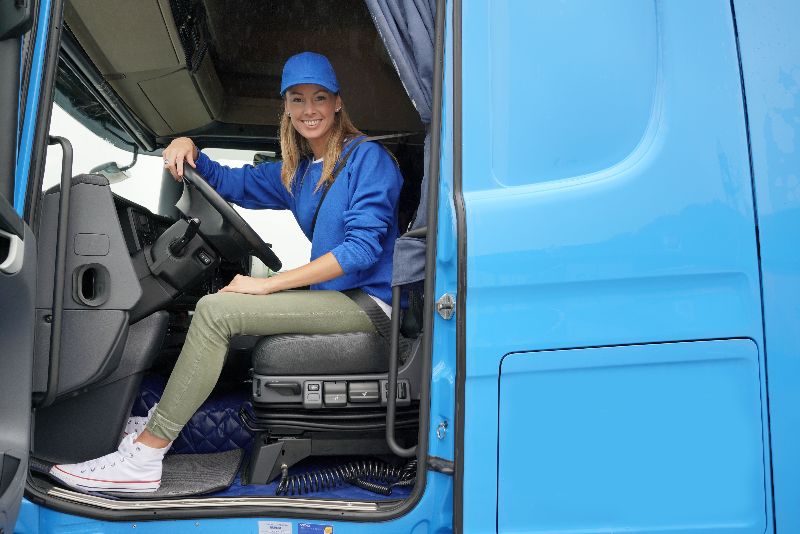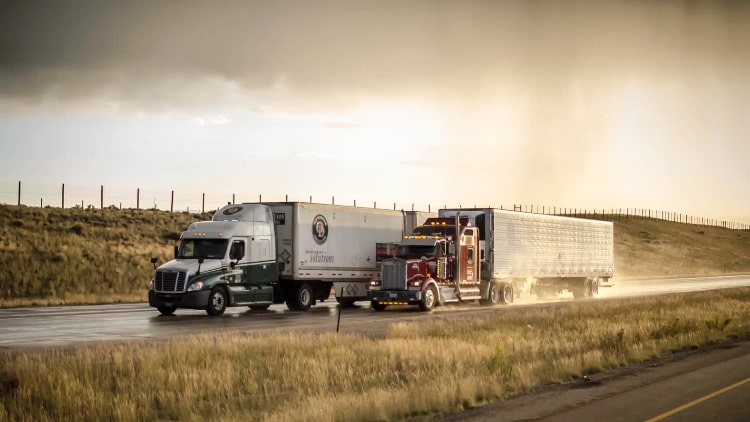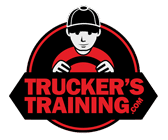Recent reports on education in the US note the figures for student debt run into trillions of dollars. Many parents and students may think that the fees and debts incurred will be worth it to enable graduates to acquire good, well-paid employment.

Sadly, this is not so in many cases, and in future, the focus might be more centered on the reliability of finding secure jobs with or without a degree. Trucking plays a huge part in the health of a nation’s economy and it may be one area of employment that will continue to attract job-seekers. Currently, the trend is upward, and here are some of the reasons why.
Truck Driver Demand
US transport authorities estimate that 70% of all freight is moved across the country by truckers. They also report that approximately 80% of US communities depend upon their daily needs being supplied by trucks.
The demand for truck drivers and other positions in the industry is not just constant but growing rapidly. There has been a shortage of qualified operatives for some years and the shortfall is widening daily, exacerbated by 2 major factors:
- The growth of e-commerce and demand for door-to-door goods deliveries.
- The effects of the Covid-19 pandemic with an increased demand for medical, sanitary, and vital supplies to isolating individuals and communities.
The jobs are there, waiting to be filled, unlike some of the limited opportunities in other industries. Truckers are needed in every state to travel everywhere and move just about everything.
Skills Training

Although it is necessary to have proof of a basic level of education, it is not necessary at present for applicants to have obtained degrees. Most trucking companies are willing to provide or assist with the costs of training for the Commercial Driver’s Licence (CDL) certification. Successful trainees acquire lifetime skills and qualifications for a career that is likely to be in demand for the foreseeable future.
Opportunity and Independence

Lifestyles have altered considerably in recent times. Trucking presents the opportunity for drivers to be out on the road, traveling to many places, and meeting new people. They can often choose their own routes and experience the beauty of the countryside and scenery along the way. Contrary to an old belief that there is only one type of trucking, there are diverse opportunities in various categories such as medical or livestock.
Truckers can choose to concentrate on flat-bed or long-haul contracts or go into teaching roles. Some experienced drivers may consider starting their own business and with women drivers welcomed in the workforce a family company could develop. There is a definite career path and benefits to extended service that creates an appeal for job seekers looking for stability and advancement.
Pay and Benefits

Trucking was once thought of as a free and easy lifestyle but with low pay and rough conditions. Today, that image is fading as improvements in conditions, security, and pay are changing trucking into a well-paid career opportunity.
A trucker working on long-haulage for a private company can expect to earn around $76,000 p.a with entry-level at $52,000. Experienced or specialist truckers can take home considerably more. In addition, there are a number of bonus schemes and benefits like paid medical, dental, or personal insurance. Some private companies offer paid holidays/vacations, bi-annual pay increases, and generous social and family time.
Women in Trucking

Gender diversity in all industries is an important topic today and in trucking, the urgent need for more drivers has amplified the campaign to employ more women. There has been an encouraging response and desire from women to join the trucking industry and not just in desk jobs.
The industry has seen an increase in applications for trucking posts as well as in management and other roles. In the past, a number of issues made it difficult for women in this profession. Some attitudes suggested that it was not a job for women. Females were not physically capable or reliable and stopover bars and eateries were dangerous places for them were just a few of the negatives.
Attitudes have changed somewhat, in-truck security systems have been introduced, power-steering and modifications to the vehicles have all made driving more acceptable to/for females. Changes in working hours and conditions have been extended to consider family and social needs. The rate of pay for women is always an emotive issue but is at present relatively high and attractive for women in trucking.
Freedom

Another change that has come about during the pandemic is the rejection by many employees of the restrictions of a 9-5 job. Sedentary office jobs, fixed working locations, and limited family time were swept away during lockdowns, and working from home became the norm for millions. Lifestyles experienced a seismic shift and for many, it was permanent along with the modern digital age which enables the possibility of working anywhere, anytime.
Trucking can mean long periods away from home which appeals to some workers, free out on the road. For others, new regulations in working hours are making it easier for those who want to juggle work and home life.
Safety and Security

Initiatives by the FMCSA, the official licensing agency, and authority for improving safety in trucking, have addressed some of the problems within the industry.
New standards of training and certification, regulations on working hours, vehicle safety checks, and security improvements have modernized the image of a trucker’s life. The trucker of the movies has gone and a new professional driver has emerged garnering the mutual respect of other truckers and due public regard.
Publicity campaigns are helping to encourage recruitment by highlighting this new reputable well-paid and secure profession. Many job seekers seem to be responding as well as those who wish to change from their present job and try a new lifestyle and career.
Trucking as a Second Career

This is not about moonlighting as the controls on working hours would restrict this practice but rather enjoying another career when the first is over. In these days of early retirement and redundancies, there are many people barely into middle age who would prefer to go back into employment.
Stringent health and eyesight checks may be required but a recent report states that the average age of a professional truck driver is sub 50 years old. Trucking doesn’t have an ageist image and applicants are welcome from 18 years old upwards including older drivers looking for a second career.
Older applicants bring years of car driving and life experience to a profession that is in great need of those attributes. In return, trucking offers plenty of long-term secure, and well-paid employment.
Camaraderie

The freedom of being on the road and the joys of traveling across states and even to other countries still has a romantic appeal. Trucking, though, can be tough at times, with long hours away from home, bad weather conditions, breakdowns, and incidents on the road.
One image from the movies though is very real. Truckers develop strong bonds and camaraderie exists between truckers to help each other through any bad times. The pandemic tarnished this image for a while with overstressed drivers, inadequately staffed depots, and chaotic conditions beyond anything experienced before. As life begins to return to normal, a new era of trucking has arrived with bonds and mutual support among truckers returning with it.
The Expanding Industry

Trucking is one of the few industries that has shown growth in this extraordinary time and this is likely to continue. At present trucking is a non-automatic industry with limited aid from AI and Bot technology. Although these advances will surely impact trucking too, to date there is no artificial intelligence that can supplant a human truck driver.
The need for qualified staff is unlikely to diminish for a long time. There are many divisions within this world of delivering goods and the choice for jobseekers is wide with many local and regional posts available. Big e-commerce companies like Amazon need van drivers to deliver millions of items to warehouses and homes daily.
The trend is for retailers to offer home deliveries too, often preferring fleets of vans or small delivery vehicles over the national postal system. First-time truckers may develop their craft driving dry goods vehicles and later switch to the most highly sought-after posts of tanker drivers.
Transporting liquids, including hazardous materials, are skilled trucking jobs and the most challenging and highly paid. There are some people who prefer to work daily and/or short-haul jobs and others who enjoy the long-haul opportunities. It can be seen that there is a great variety of opportunities for all entering the world of trucking.
Takeaway
Trucking offers the opportunity of secure, well-paid, and diverse driving positions without the need for expensive graduate courses. The industry is experiencing growth that is likely to continue for some time with plenty of career opportunities for those who join the workforce. Improvements in training, safety, and welfare have made trucking a respected and enviable career choice.

Geoff is a freelance writer at TruckersTraining.com with 20+ years of experience driving trucks and buses, dispatching, supervising, and training commercial driving teams. His expertise is writing topics on the transportation and trucking industry, and information technology trends.
